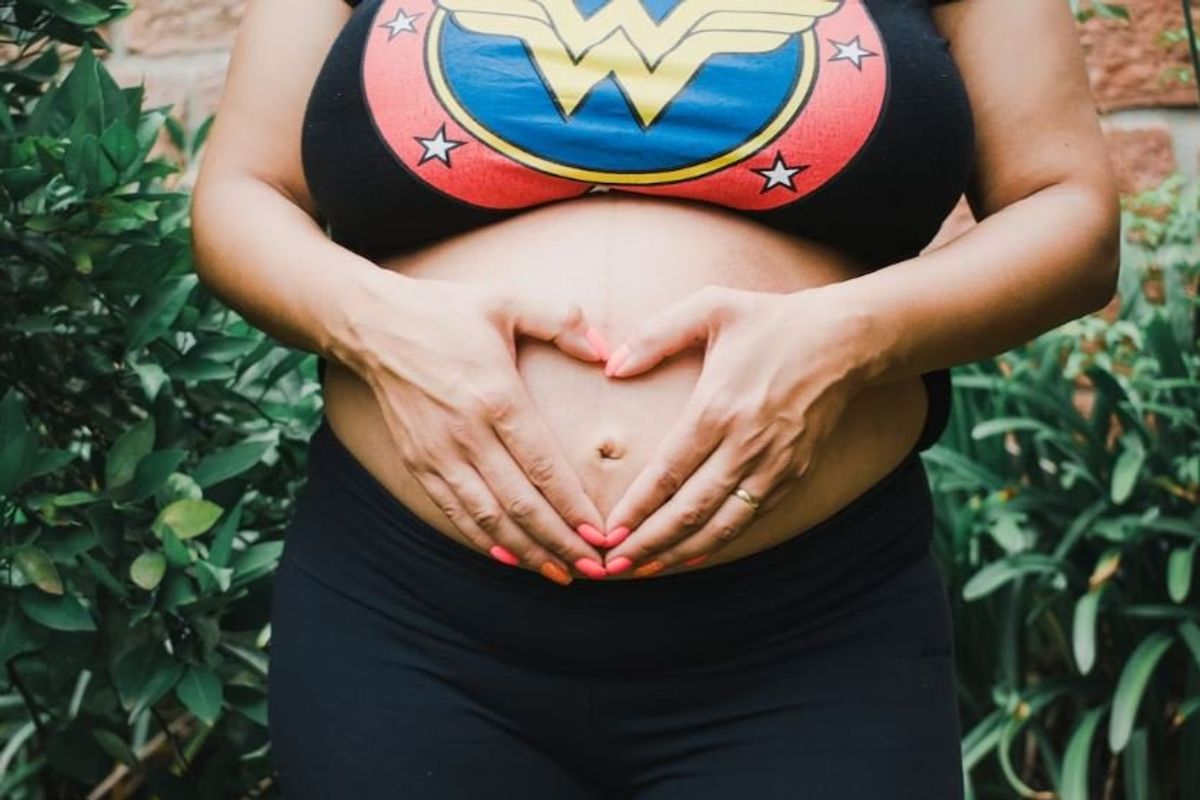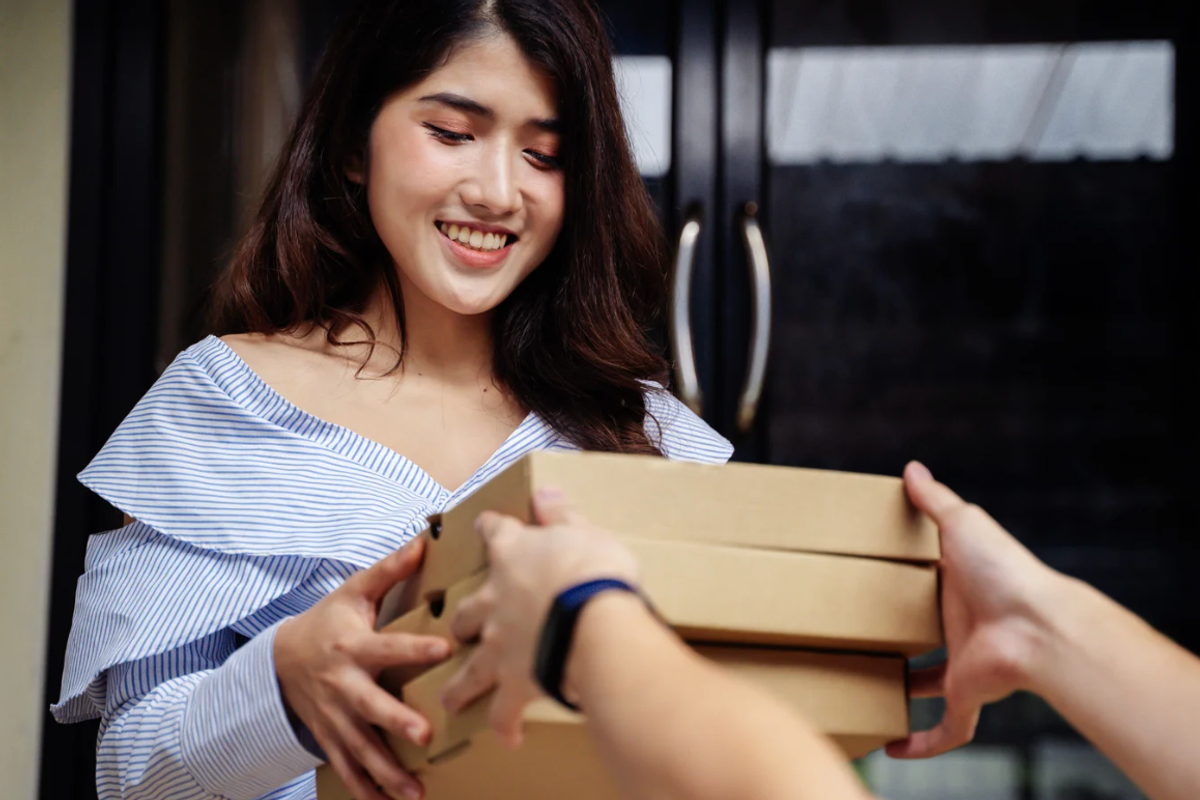A new federal law just took effect that protects pregnant women in the workplace
Eight in 10 pregnant women work until their final month of pregnancy. They deserve protection.

A pregnant woman in a Wonder Woman shirt holds her belly.
Pregnant workers should have an easier time getting a drink of water, wearing a uniform that fits, and being allowed to work from home thanks to a new law. The Pregnant Workers Fairness Act (PWFA) ensures that pregnant workers get reasonable accommodations in the workplace without fear of being fired or retaliation.
The PWFA was passed as part of the $1.7 trillion government funding bill.
“At long last, pregnant workers can no longer be forced off the job for needing light-duty work or a stool to sit on to maintain a healthy pregnancy,” said Dina Bakst, co-founder and co-president of A Better Balance. “Working moms no longer have to fear job loss for needing time off to recover from childbirth safely. No longer will women nationwide face the impossible choice between maintaining a healthy pregnancy and affording food for their families.”
The law is a landmark case for women’s rights because 72% of all working women will become pregnant at some point in their careers. Further, 8 in 10 first-time pregnant women will work until their final month of pregnancy. To offer “reasonable accommodations” for women 8 months pregnant is the least employers can do.
Under the new law, a pregnant worker can go to their employer and ask for a “reasonable” accommodation, and they discuss whether it can be granted. If the employer doesn’t approve the request, the pregnant employee can file a challenge with the Equal Employment Opportunity Commission.
Currently, the law doesn’t provide any hard-set rules for accommodations. But by the end of the year, the EEOC will announce a list of accommodations subject to public comment.
Examples of “reasonable accommodations” include:
- Light duty, or help with manual labor and lifting
- Changing food or drink policies to allow a worker to have a water bottle or food
- Changing a uniform or dress code, like allowing wearing maternity pants
- Changing a work schedule, like having shorter work hours or a later start time to accommodate morning sickness
- Flexible scheduling for prenatal or postnatal appointments
- Remote work or telework
- Time off for bed rest, recovery from childbirth, postpartum depression, and mastitis
The law is essential for women’s rights, but it also clarifies the 2015 Young vs. UPS Supreme Court decision. Peggy Young was a pregnant UPS worker whose doctor said she shouldn’t lift more than 20 pounds. UPS told Young that if she couldn’t lift 70 pounds, she’d be placed on leave without pay. The Court sided with Young, but the decision left employers unclear about the rights of pregnant employees. The legal gray area allowed workers to take their employers to court.
“We believe it is going to reduce the chances for that type of litigation and provide clarity to employers about what their obligations are,” said Marc Freedman, vice president of workplace policy at the U.S. Chamber of Commerce. “Our expectation is that a high majority of these requests for accommodation will lead to employers and employees finding a way to work things out.”
- The Pump Act is now law and protects parents nursing children at ... ›
- Woman fired by boss for being pregnant gets sweet revenge ›
- What 6 weeks pregnant actually means is not what many people think it means ›
- How the Stewardess Rebellion changed the workplace for women - Upworthy ›
- Couple's comedy video about pregnancy loss goes viral - Upworthy ›



 Meatloaf was a staple dinner.
Meatloaf was a staple dinner. Spaghetti is still a classic.
Spaghetti is still a classic. Why were pork chops so popular?
Why were pork chops so popular?
 Pluto and Goofy along with Chip and Dale. Photo by
Pluto and Goofy along with Chip and Dale. Photo by  Dogs aren't normally allowed onboard cruise ships unless they're service dogs, like Forest. Photo by
Dogs aren't normally allowed onboard cruise ships unless they're service dogs, like Forest. Photo by 
 Smiling girl chatting outdoors with a friend.
Smiling girl chatting outdoors with a friend. Smiling warmly in a cozy sweater, feeling relaxed and happy.
Smiling warmly in a cozy sweater, feeling relaxed and happy.
 What do you do when you find an egg where it doesn't belong?
What do you do when you find an egg where it doesn't belong? 
 Sick woman in bed with thermometer, scarf, and hot water bottle on neck.
Sick woman in bed with thermometer, scarf, and hot water bottle on neck.